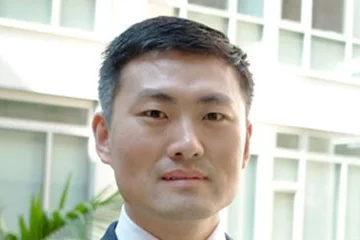CTSI / CSORDA Pilot and Feasibility Studies
Alert
UCLA Center for Study of Opioid Receptors and Drugs of Abuse (CSORDA), a NIDA-funded P50 Center at UCLA with support from the UCLA CTSI, provides funding for high-quality, innovative research that is in opioid-related areas and of relevance to the CSORDA mission.
Any approach, from basic to preclinical or clinical research that involves exogenous or endogenous opioid actions, will be considered.
CSORDA invites applications for the 2021-2022 academic year. This call is the last call of 3 annual calls for pilot funding in the CSORDA P50 pilot program.
Up to $20,000/year is available (or $40,000/year with justified clinical translational significance). Four pilot projects will be funded in 2021. Up to two of them will be considered at the $40,000 funding level if strongly justified.
Application Process
Proposal
Must include: 1) applicant’s name, academic rank, affiliation, and proposal title; 2) NIH format biosketch listing current funding and noting any overlap with any funded projects; 3) relevance to the CSORDA mission; 4) 1-page description of aims and approach (use Arial 11-point font); 5) a brief budget*. If the proposal is a continuing pilot funded in 2020-21 it will be considered, but evidence of substantive progress must be provided in an addendum to the application.
If requesting funding exceeding $20,000 in support of a clinically related project (up to $40,000), include an additional page explaining translational significance (does not require human studies).
Please send completed application to Ana Elias at AElias@mednet.ucla.edu. Top applicants will be asked to present the project to the committee and other CSORDA faculty for ranking, feedback, potential collaborations and synergy with other ongoing CSORDA projects.
*Budget Restrictions and Eligibility
Eligible applicants should hold a senate faculty position or ask for exception (please contact Ana Elias at AElias@mednet.ucla.edu before completing an application who can re-direct questions). Budgets cannot be used to cover faculty salaries.
*Open to UCLA researchers
CSORDA Mission (CSORDA P50 Abstract)
Addiction to therapeutic opioid drugs and heroin has seen a marked increase in the USA during the past two decades. In 2014 therapeutic opioid overdose killed 18,893 people and 10,574 died from heroin. Opioid overdose is the primary driver for drug poisoning being the leading cause of accidental death in the USA, with 47,055 fatalities in 2014. The UCLA Center for Study of Opioid Receptors and Drugs of Abuse (CSORDA) has a focused multidisciplinary preclinical opioid research program with a broader educational and outreach mission in the area of addiction. Mu opioid receptors are targets for many addictive disorders since they are key components for mediating the rewarding effects of opiates, nicotine, cannabinoids, alcohol and food. CSORDA’s research program focuses on elucidating the circuitry and cell-specific adaptations underlying addiction-related behaviors mediated by mu opioid receptors. This CSORDA renewal application (years 31-36) focuses on understanding the circuitry regulating dysphoric states and investigates different opiate addiction susceptibility models, including neuropathic pain, opioid withdrawal and PTSD. The research plan will build upon progress during the past funding period by incorporating several CSORDA-developed innovative genetic mouse models, findings with regards to resting state fMRI imaging, as well as the elucidation of circuitry regulating opioid reward via neuroinflammation and perturbation of D2 enkephalinergic systems. The renewal will use a model of PTSD to examine the marked comorbidity of this disorder with addiction to drugs reliant on the endogenous opioid system for reward-related behaviors. To maintain CSORDA as a technically cutting edge and innovative center we have created a Technical Advancement Core (TA-Core) which will enable CSORDA’s research plan to incorporate new technologies optimized and vetted for CSORDA research. Four Research Projects are proposed that are highly interactive both thematically and technically and that use shared models, reagents and methodologies. Projects will focus on different brain circuitry associated with addiction, including the mesolimbic VTA striatal reward system (Projects I and III), the habenula (Projects II and III) and the amygdala (Project IV). Research Projects will explore the modulation of circuitry modifications in models of chronic pain (Project III), withdrawal and depression (Projects I, II and III) and PTSD (Project IV). The research will employ mouse genetics and behavioral analysis combined with electrophysiology, optogenetics, transcript analysis and MRI imaging. In addition to the TA-Core, CSORDA will support an Animal Breeding Core (AB-Core)supplying all CSORDA Projects with mouse models and extending facilities into the research community. The Administrative Core will provide programmatic oversight and coordinate training, outreach and a vigorous Pilot Program.
About UCLA CTSI
The UCLA Clinical and Translational Science Institute (CTSI) is a research partnership of UCLA, Cedars-Sinai Medical Center, Charles R. Drew University of Medicine and Science and the Lundquist Institute for Biomedical Innovation at Harbor-UCLA Medical Center. Its mission is to bring biomedical innovations to bear on the greatest health needs of Los Angeles—one of the most ethnically and economically diverse counties in the United States. Our vision is to catalyze research that translates discoveries into tangible improvements in health care, disease prevention and health in our community. The UCLA CTSI is one of more than 50 research hubs supported by the Clinical and Translational Sciences Award (CTSA) program of National Center for Advancing Translational Sciences (NCATS). NCATS—one of 27 Institutes and Centers at the National Institutes of Health (NIH)—was established to transform the translational process so that new treatments and cures for disease can be delivered to patients faster.
Recent News
See more news on CTSI-funded researchers
Dr. Sung-Jae Lee and Team awarded $1.5M for capacity building training program in Vietnam and Thailand
Dr. Sung-Jae Lee ecently received $1.5M in research funding for Fogarty HIV Research Training Program for Low-and Middle-Income Country Institutions


CTSI TL1 alum Ricky Savjani receives honorable mention at CTSA Program Annual Meeting
CTSI TL1 alum Ricky Savjani receives honorable mention at CTSA Program Annual Meeting

Iris Cantor-UCLA Women's Health Center and CTSI fund five new projects
Iris Cantor-UCLA Women's Health Center and CTSI fund five new projects